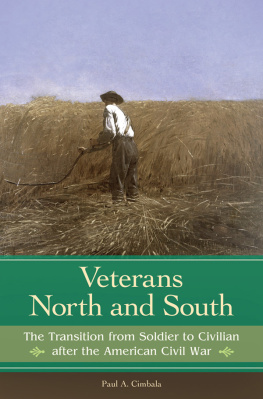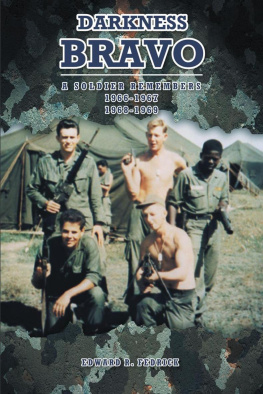Published by
Vij Books India Pvt Ltd
(Publishers, Distributors and Importers)
2/19, Ansari Road
Delhi 110 002
Phones: 91-11-43596460, 91-11- 47340674
Fax: 91-11-47340674
e-mail:
Copyright 2015, William J. Phalen
ISBN: 978-93-84464-94-3 (Paperback)
ISBN: 978-93-84464-95-0 (ebook)
All rights reserved
No part of this book may be reproduced, stored in a retrieval system, transmitted or utilised in any form or by any means, electronic, mechanical, photocopying, recording or otherwise, without the prior permission of the copyright owner. Application for such permission should be addressed to the publisher.
The views expressed in the book are of the authors and not necessarily those of the publishers.
Introduction
Called a Frenchman always in search of a revolution by Edward L. Pierce, a biographer of Senator Charles Sumner, Gustave Paul Cluseret, managed during his long life to become involved as a military figure in France, Ireland, and Italy, while also taking part in the American Civil War. Additionally, he was imprisoned twice by the French and condemned to death by both the British and the French. Cluseret published four books, edited a newspaper in the United States and contributed articles to newspapers and journals in Europe and the United States. He was an accomplished painter, and served as a spy for Senator Charles Sumner in Mexico and Europe. And finally near the end of his life he served in the French Chamber of Deputies.
In his obituary, the New York Times said of him that he was of a treacherous character, unreliable and frequently connected with questionable enterprises which got him into trouble every where he went. He was also referred to as a Condottieri, a mercenary or sometimes simply as a soldier of fortune. While he had problems with authority, especially the incompetent kind, and was always an outrageous self-promoter, he genuinely supported the cause of freedom prompting him to join in civil wars in America and Europe.
to this end.
With Ambassador Marshs support, Cluseret arrived in the United States in 1862 armed with letters of introduction from Garibaldi and such leading Fortunately for him, Cluseret also gained the attention of Senator Charles Sumner of Massachusetts, chairman of the Foreign Relations Committee. A relationship formed between Sumner and Cluseret that resulted in the sending of 116 letters from Cluseret to Sumner from 1861 to 1873 that are preserved among Sumners papers.
Because of these connections, Cluseret was offered a position on the staff of Major General George B. McClellan, as aide-de-camp with the rank of colonel, he accepted and the promotion was made effective on March 10, 1862. This placement was not acceptable to McClellan however as he noted in his biography:
Cluseret-afterwards Minister of War under the Commune- brought me a letter of introduction from Garibaldi, recommending him in the highest terms as a soldier, man of honor, etc. I did not like his appearance and declined his services; but without my knowledge or consent Stanton appointed him a Colonel on my staff. I still declined to have anything to do with him, and he was sent to the Mountain Department [commanded by Major General John C. Fremont], as chief of staff, I think.
In writing his autobiography, McClellan obviously forgot that a month before Cluseret officially joined his staff; he wrote a letter to Seward describing Cluseret in favorable terms.
Hd Qtrs of the Army
Wash Feby 11 1861 [1862]
To
William H Seward
Hon WH Seward
Secty of State
Dear Sir:
I had an interview with Col. Cluseret, late of the Italian Army, introduced to me by Capt Mohain of the Suite of Prince de Joinville. Col C also brought me a letter of introduction from General Garibaldi. Col C whose etat de service is good informs me that he resigned his commission in the Italian army upon the insistence of Mr. Marsh, who had corresponded with the late Secty of War and yourself upon the subject. That he resigned after receiving what he regarded as a promise that he should have the grade of general of Brigade in our service.
He seems to be a gentleman and good soldier. He has been waiting here many weeks so that his slender means have been exhausted. May I ask you to inform me whether your records throw any light on the case and whether the good faith of the Govt is pledged to this officer?
The Sect of War being absent from his office it seemed better to address you direct without delay as Col C has been waiting a long time.
Very truly and respectfully
Geo. B. McClellan
Maj Genl Comdg USA
At first, his prospects in America looked just as good. He had joined McClellans staff and this combined with his recommendations from Europe and the contacts that he had established with Sumner, Seward, and the Secretary of War should have given him what he wanted, a commission as a brigadier general, a rank he deemed commensurate with his past experiences and his ties to French republicanism.
Fortunately, Cluseret was sent to John C. Fremonts command in the Mountain Department of western Virginia by Senator Sumner who believed that the Pathfinders The following is an account of the actions of Cluserets unit that evening as seen by Major and Brevet Colonel Theodore F. Lang of the 6th West Virginia Cavalry.
A reconnaissance by Colonel Cluseret with the 8th West Virginia and 60th Ohio pushed rapidly towards Strasburg [Virginia], when within a short distance of the town he learned that the enemy had vacated the place. So, with the addition of a battalion of cavalry and a section of artillery, he was ordered to take possession of the town. Night brought with it one of those terrible storms that had become so frequent of late, and this one excelled in its downpour of rain, and the lightning and thunder were indescribable. It was simply terrifically grand.
A thrilling incident, in which Colonel Cluseret and his command were the actors, is worthy of mention. The night just referred to was simply black in its darkness, and but for the vivid flash of the lightning for the moment one could not see his outstretched hand. Colonel Cluseret, being without guides and unfamiliar with the country, passed through the town, which was in darkness, and marching on saw lights in the distance, which he supposed was the town, but upon approaching the same, about 11 oclock, the lights proved to be the enemies campfires, and he found himself in the midst of Ashbyscavalry, which was the rear-guard of Jacksons army. Colonel Cluseret at once gave the order to charge, but at the sharp fire of Ashbys men the cavalry broke in a shameful panic, carrying back with it the artillery. To the honor and praise of the 8th West Virginia and 60th Ohio, not a man of them followed the disgraceful example, but stood their ground like veterans, and delivered such a steady and well-directed fire that the movement of Ashby was checked.
Colonel Cluseret, having accomplished the objectives of his reconnaissance, withdrew his men and returned to the main columnthis battle in the dark was [Cluserets regiments] first introduction to powder and bullet at the hands of the enemy; they were, therefore, the more to be praised for their gallantry.






